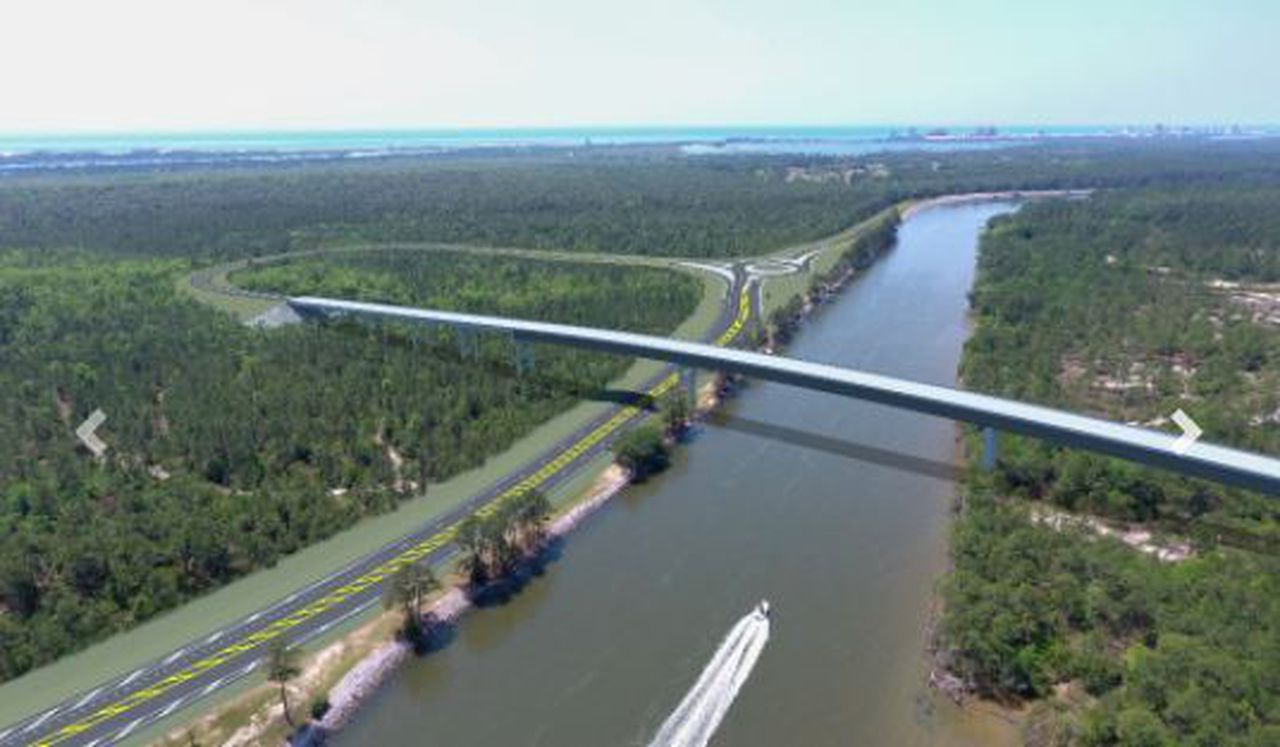Alabama counties worry beach bridge lawsuit could âflood the courts with litigationâ
A judge’s order halting construction of a state bridge in Gulf Shores violates the constitutional separation of powers and could lead to a flurry of lawsuits seeking to block other public works projects around Alabama, one group says. And it would mean costly legal bills for the local governments trying to build them.
The arguments are raised in a legal filing last month before the Alabama State Supreme Court by the Association of County Commissions of Alabama.
Related content:
The filing, among other things, claims that Montgomery County Circuit Judge Jimmie Pool’s May 17 decision to stop the $120 million bridge project, if unchallenged, will “flood the courts with litigation” from people disgruntled over decisions by public bodies like county commissions.
They also argue that Pool’s ruling “represents an unprecedented expansion of judicial review of administrative decisions.”
The ACCA is a new participant within the ongoing lawsuit being appealed to the state’s highest court by the director of the Alabama Department of Transportation.
“A governing body must be able to exercise its discretion in allocating its limited resources,” said Sonny Brasfield, executive director of ACCA. “Subjecting the body to litigation simply because someone disagrees with the decision is contrary to the Constitution.”
Brasfield said, “Decisions must be legal, and the process must comply with the law, but disagreement does not equate to bad faith.”
The Alabama State Supreme Court will likely have the final say on the fate on the state’s bridge project where construction has been stopped since Pool’s decision, and which has created a rift between the cities of Gulf Shores and Orange Beach.
The appeal was submitted by ALDOT Director John Cooper after Pool slammed him for behaving in “bad faith” and engaging in what he said was a long effort to put the Baldwin County Bridge Company – the owners of the Foley Beach Express toll bridge — out of business.
The toll bridge is approximately 1.1 miles west of where the proposed two-lane state bridge would be located. Pool, in his ruling, referred to that proposed new bridge as the “Cooper Bridge.”
Brasfield said if Pool’s ruling is not overturned by the state’s high court, it will “essentially nullify the county commission’s ability to allocate” tax money.
“If anyone who disagrees with the commission’s decision is allowed to advance a ‘bad faith’ argument, counties will be flooded with lawsuits,” Brasfield said.
Joe Espy, a Montgomery-based attorney representing BCBC, said that the ACCA is missing the point of the entire case. The company’s legal fight, they have said, focuses on Cooper and what they claim is his intent on bankrupting the company.
BCBC, last year, offered an alternative proposal to build two new lanes on their bridge, while expanding the number of toll plazas and making $70 million in additional infrastructure improvements for Gulf Shores and Orange Beach.
The BCBC project is backed by Orange Beach city officials, while Gulf Shores city officials support the state bridge in their city.
Related: Orange Beach and Gulf Shores spar over plans for new bridge to the beach
“The (ACCA) and its director completely miss the point of the case which is understandable because they were not in court and did not hear the evidence,” Espy said. “I am sure this association and its director do not want public officials acting in bad faith which costs taxpayers millions and millions of dollars. Surely, that is not the way they conduct their county business.”
The ACCA is the only state association representing local governments to have entered into the Supreme Court case. The League of Municipalities – an organization that lobbies on behalf of city and town governments throughout the state – “have not been engaged on this case and were not requested to participate.”
The ACCA, in its court filing, argues that Pool’s ruling was “novel” and represented an “unauthorized interference with the discretion vested” in Cooper’s position as director of ALDOT. As director, Cooper has the authority to prioritize road projects.
“The judicial branch simply does not have the authority to determine whether the ‘Cooper Bridge,’ as the circuit court refers to the disputed bridge, is a good and/or wise use of resources – not even, or perhaps especially, if its determination is couched as being a question of ‘bad faith,’ as that term is colloquially used.”
The filing says that the “great care” has to be exercised by the Supreme Court “not to usurp the functions of other departments of government” and adhere to the separation of powers enshrined in the 1901 Alabama Constitution.
“It must be regarded as settled that the court will not interfere by injunction except in case of corruption, fraud or bad faith, the equivalent of fraud,” the filing reads.
The ACCA argues that Cooper’s decision to proceed with the bridge was an “administrative function.”
Pool determined, following a bench trial, that Cooper intended to put BCBC out of business by building the new two-lane bridge in Gulf Shores.
The Supreme Court’s eventual ruling will decide whether a fourth bridge is built leading motorists to the state’s beaches. Visitors to Alabama’s beaches have only three existing ways to reach them: W.C. Holmes Bridge (Alabama State Route 59) through Gulf Shores, BCBC’s toll bridge in Orange Beach and the Perdido Pass Bridge that is also in Orange Beach.
